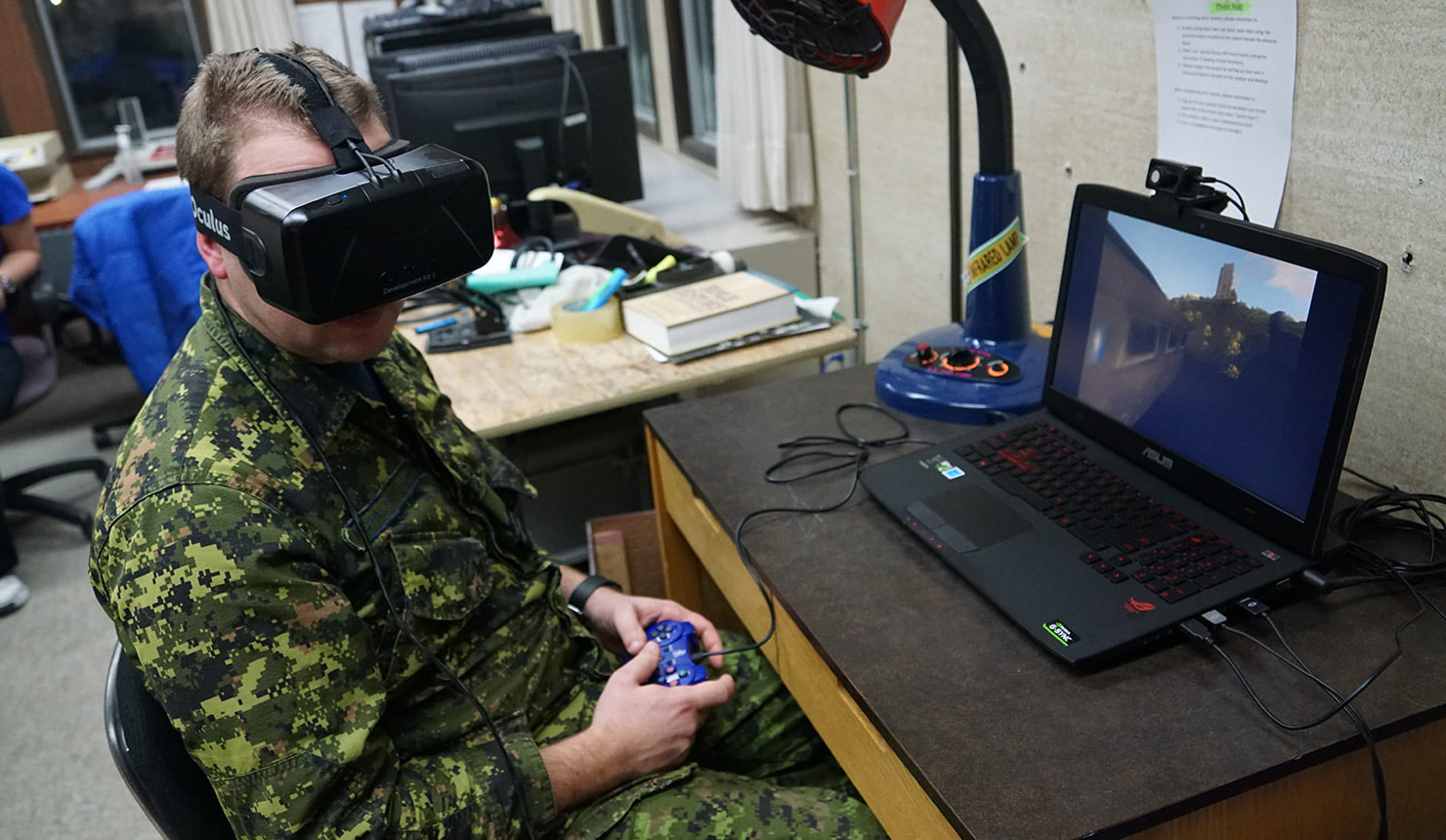- Undergraduate
Bachelor's Degrees
Bachelor of ArtsBachelor of EngineeringPartner School Dual-DegreeUndergraduate AdmissionsUndergraduate Experience
- Graduate
Doctoral Degrees
Doctor of PhilosophyPhD Innovation ProgramDoctor of Medicine-PhDGraduate AdmissionsGraduate Experience
- Research
- Entrepreneurship
- Community
- About
-
All Thayer News
To Sustain Astronauts' Mental Health, Dartmouth-Led Team Testing New Virtual Reality Tech in Arctic
Jan 06, 2016 | Geisel School of Medicine at Dartmouth

[Adjunct professor of engineering,] Dartmouth physician and former astronaut Jay Buckey is leading a team of international investigators testing new virtual reality technology in the Arctic this winter. Their goal is to see whether simulated natural beauty can relieve the psychological challenges of living in the isolated confines of deep space travel.
The test site is the Canadian Forces Station Alert (CFS Alert), the most northerly, permanently inhabited location in the world, only 817 kilometers from the geographic North Pole. The project got underway last week. Its primary goal is to find “effective ways to maintain and even improve astronauts’ psychological health on long-duration space flights” to Mars and elsewhere, says Buckey, the project’s principal investigator and a professor at Dartmouth’s Geisel School of Medicine.
The technology will bring nature’s restorative sights and sounds to the inhabitants of CFS Alert, immersing them in virtual reality scenes from New Hampshire’s beautiful mountains, produced by Dartmouth’s Digital Arts Leadership and Innovation lab (DALI), and picturesque landscapes from Australia and Ireland. The CFS Alert crew will also experience virtual scenes and sounds called “Virtual Wembury,” produced by Professor Robert Stone at the University of Birmingham, that allows users to navigate Wembury, a seaside village in the United Kingdom. Virtual Wembury is currently part of a research program in the U.K. sponsored by the Royal Centre for Defence Medicine, evaluating the impact of virtual scenes of nature on the recovery patterns of patients within the Intensive Care Unit of Birmingham’s Queen Elizabeth Hospital. At the project’s conclusion, the CFS Alert crewmembers will be asked to rate the virtual scenes for their realism and immersion, which scenes they preferred and why, and how the scenes affected their mood and stress.
For contacts and other media information visit our Media Resources page.
